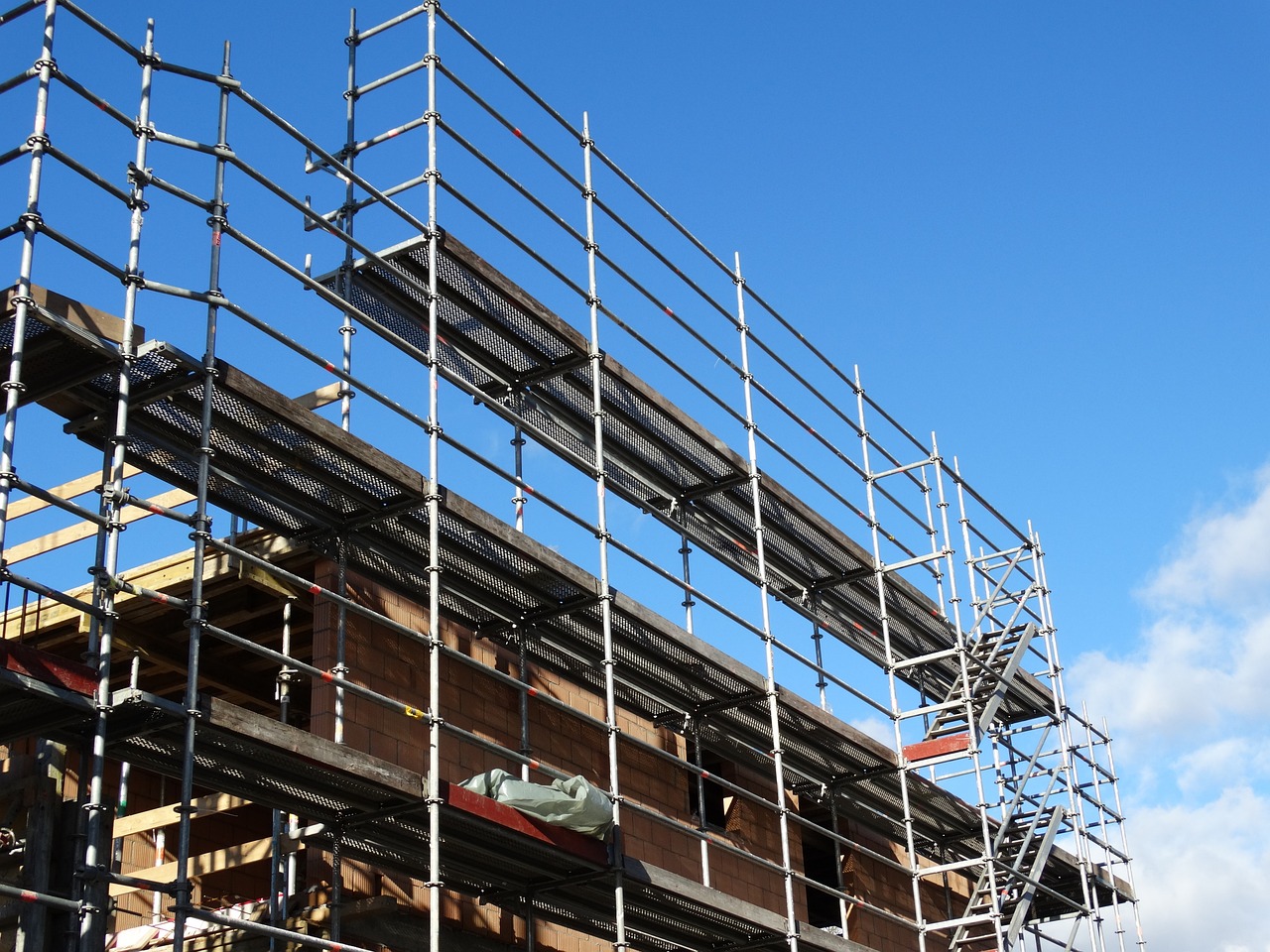SMS messaging now available in Housebuilder Pro!
Effective communication with clients is essential in the property and housebuilding industry—whether it’s confirming appointments, updating on build progress, or providing post-sale aftercare. With the new SMS messaging feature now integrated into Housebuilder Pro, you can take your customer communication to the next level! 📲
In our latest article, we dive into how SMS can transform the home-buying journey—from instant updates and appointment reminders to proactive aftercare communication. 📈
Here’s how SMS messaging can benefit you:
✅ Instant responses to enquiries
✅ Automated appointment reminders
✅ Timely updates during construction
✅ Seamless post-sale support
With Housebuilder Pro’s new SMS integration, you can improve engagement, streamline operations, and ensure clients always feel informed and valued.
🔗 Read the full article to learn more about how SMS can enhance your sales and aftercare processes.
UK Housebuilders under Fire: Land banking and broken promises threaten housing and sustainability goals
Recent critiques from environmental leaders have spotlighted significant challenges within the UK’s housebuilding sector, particularly concerning land utilisation and environmental commitments. Craig Bennett, CEO of the Wildlife Trusts, has criticised major developers for not progressing with construction on sites that already have planning permission, attributing this stagnation to land speculation practices. He asserts that many volume housebuilders prefer to retain land, anticipating value appreciation, rather than actively building homes.
This scrutiny emerges amidst the government’s ambitious objective to construct 1.5 million new homes, with plans to streamline planning regulations to facilitate this goal. However, Bennett contends that merely relaxing planning laws may not effectively address the underlying issues, as the core problem lies in the industry’s operational strategies.
Further concerns have been raised regarding developers’ adherence to environmental pledges. A study conducted in East Leake, Nottinghamshire, revealed that commitments to enhance biodiversity—such as creating species-rich grasslands and installing bird and bat boxes—were frequently unfulfilled. For instance, designated skylark nesting sites were found to be unsuitable due to improper maintenance.
These findings underscore the necessity for developers to not only focus on accelerating construction to meet housing demands but also to honour environmental commitments. Integrating nature-friendly practices into developments is crucial for sustainable growth and maintaining public trust. As the industry moves forward, balancing economic objectives with environmental responsibilities will be essential in shaping the future of UK housing.
Government’s planning reforms under fire: Industry faces uncertainty over housing targets
The UK government’s latest efforts to reform planning regulations have sparked fresh concerns across the housebuilding sector, with many in the industry questioning whether the proposed changes will genuinely accelerate housing delivery or simply add further complications.
The government has reaffirmed its commitment to building 1.5 million homes by the next general election, but recent analysis suggests that planning bottlenecks, regulatory uncertainty, and local opposition continue to hinder progress. While ministers argue that streamlining planning laws will unlock development, many housebuilders insist that deeper structural issues need addressing.
Land availability vs. Planning delays
One of the key challenges remains the disconnect between land availability and planning approval rates. Developers point out that, despite government claims, many viable projects remain stuck in bureaucratic limbo. The introduction of additional environmental regulations, alongside local authority resource constraints, has further slowed the process.
While some large-scale developers have been criticised for sitting on land banks, industry insiders argue that unpredictable policy shifts and protracted approval timelines make long-term planning difficult. This uncertainty, they warn, risks deterring investment in new developments, ultimately stalling the government’s housing ambitions.
Balancing growth with environmental responsibility
Sustainability is another contentious issue. The government has promised to balance housing growth with environmental responsibility, yet critics argue that current proposals fall short of ensuring biodiversity protection and sustainable construction practices.
Recent cases, such as delays in implementing biodiversity net gain requirements, highlight the ongoing tension between accelerating housing supply and maintaining ecological commitments. Housebuilders now face the challenge of integrating green infrastructure while navigating shifting regulatory demands.
Implications for housebuilders and developers
For professionals in the new homes sector, these uncertainties mean that forward planning is more critical than ever. Developers must stay ahead of evolving regulations, while also preparing for potential shifts in planning policy depending on the outcome of the next election.
Strategic partnerships with local authorities, investment in off-site manufacturing solutions, and a proactive approach to sustainability compliance may provide a competitive edge in an increasingly complex market.
What comes next?
With pressure mounting to meet ambitious housing targets, industry leaders are calling for greater clarity and consistency from policymakers. Housebuilders will be watching closely to see whether proposed reforms deliver tangible improvements—or if further delays and contradictions will keep progress stalled.
In the meantime, the sector must navigate an unpredictable landscape, balancing demand for new homes with the realities of planning delays and evolving sustainability requirements. The coming months will be pivotal in determining whether the UK’s housing strategy is truly fit for purpose or if more radical intervention is required.
Investment in social housing
The UK government has unveiled a £2 billion investment aimed at increasing the availability of social and affordable housing. This funding is expected to facilitate the construction of up to 18,000 new homes by the end of the current parliamentary term.
Strategic investment to address housing shortage
This financial commitment is part of the broader “Plan for Change,” which seeks to address the nation’s housing crisis by delivering 1.5 million homes. The £2 billion allocation serves as an initial investment, with additional funding anticipated in 2026 and beyond. The government aims to commence construction on thousands of affordable homes in March 2027, with completion targeted before the end of the current Parliament.
Complementary initiatives to support construction
In addition to the financial investment, the government has announced a £600 million skills package intended to train 60,000 construction workers. This initiative aims to bolster the workforce necessary to meet the increased demand for housebuilding.
Government and industry reactions
Deputy Prime Minister and Housing Secretary Angela Rayner stated:
“This investment will help us to build thousands more affordable homes to buy and rent and get working people and families into secure homes and onto the housing ladder.”
Chancellor of the Exchequer Rachel Reeves added:
“We are fixing the housing crisis in this country with the biggest boost in social and affordable housebuilding in a generation.”
Kate Henderson, Chief Executive at the National Housing Federation, welcomed the funding, emphasizing its role in preventing a potential decline in new home delivery and highlighting the importance of social housing for families on low incomes.
Implications for housebuilders and developers
For professionals in the housebuilding and property sectors, this investment signals a substantial opportunity. Developers with projects that have existing planning permission and are poised to commence work may benefit from this funding injection. The alignment of financial resources with workforce development initiatives also suggests a concerted effort to address both supply and labor challenges in the housing market.
As the government progresses with its “Plan for Change,” stakeholders in the housing industry should prepare for increased activity and potential collaborations aimed at delivering the targeted 1.5 million homes. Engagement with government programs and readiness to mobilize resources will be key factors in capitalizing on this significant investment in social and affordable housing.
UK housing market update: March 2025
The UK housing market exhibited mixed trends in March 2025, reflecting regional disparities and the impact of recent fiscal policy changes.
Nationwide building society report
According to Nationwide Building Society, the average UK house price remained stable at £271,316 in March, following a 0.4% increase in February. The annual growth rate held steady at 3.9%. Notably, Northern Ireland experienced a significant annual price increase of 13.5%, the highest since 2021. In contrast, London recorded the lowest annual growth at 1.9%, with average prices at £529,369.
Forbes advisor insights
Forbes Advisor UK reported that house prices rose by 2.7% in March, marking the fourth consecutive annual rise. However, regional variations were evident, with the East of England seeing a modest annual increase of 1.2% (average asking price £420,120), and the South East experiencing a 0.6% rise (average asking price £481,890). Conversely, some regions witnessed price declines during this period.
Impact of stamp duty changes
The recent conclusion of the stamp duty holiday at the end of March has influenced market dynamics. Robert Gardner, Nationwide’s chief economist, noted that the market might experience subdued activity in the coming months as previous transactions were accelerated to avoid additional tax obligations.
Implications for housebuilders and developers
For professionals in the housebuilding and property sectors, these developments underscore the importance of adapting to regional market conditions and fiscal policy changes. The end of the stamp duty holiday may lead to a short-term slowdown in buyer activity, necessitating strategic planning to navigate potential shifts in demand. Additionally, the regional disparities highlight the need for localized approaches to development and marketing strategies.
Staying informed about economic indicators and policy changes will be crucial for industry stakeholders to effectively respond to the evolving housing market landscape.




